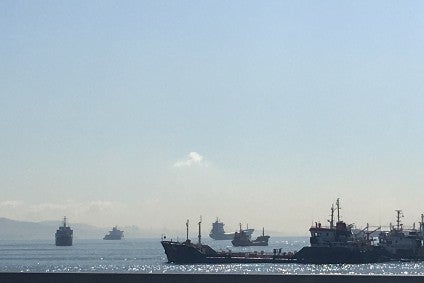
Turkey’s automotive suppliers association says the country must devise a “new story” to convince overseas investors to set up operations.
There is a certain frustration in the 80m-strong country which straddles Europe and Asia, only nine major OEMs are established and although the supplier number is far higher in the hundreds, the view is more could be done.

Discover B2B Marketing That Performs
Combine business intelligence and editorial excellence to reach engaged professionals across 36 leading media platforms.
Issues which have dogged the country for the past few years include the attempted coup d’etat in 2016 and the tensions between Ankara and Berlin, which eventually saw the release of a German-Turkish reporter.
“It is one of the major issues Taysad [suppliers association] is working on – especially in Germany we are facing that,” Taysad vice president, Albert Saydam told just-auto in his office on the Asian side of Istanbul. “We are trying as Taysad to explain to our friends abroad this is not correct.
“We have to come up with a new story; Turkish Delight, baths and sandy beaches was successful. Right now we have to write another story. That is not only the job of the government or advertising people – it is the job of the nation.”
Taysad views the relatively low level of vehicle penetration of around 200 cars per 1,000 population as ripe for overseas companies to come to the country and also for domestic suppliers.
“The ratio [of] vehicles per person is very low – that is why people see a great potential in the growth of Turkey,” added Saydam. “We are [also] one of the highest taxed countries for automotive sales. But the thing is, that is what we are trying to change.
“In the eyes of our government, it is not only important how much we make in export, it is also important how much we make globally with foreign direct investment.
“Localisation is becoming more and more important – the government is trying to increase localisation as much as possible. But their first intention is to attract foreign direct investment by all means.”
Saydam made his remarks at Taysad’s headquarters, which is also an automotive cluster with around 100 of the association’s members East of Istanbul. Evidence of the city’s importance to trade is clearly visible with the nearby Bosporus strait a logjam of ships plying the intensely busy route between the Black Sea and the Mediterranean.
“This park [cluster] is the jewel in the crown,” noted Saydam. “We are trying to create a kind of eco-system here. We also have a system called Certified R&D Centres for companies who can fulfil certain demands in R&D. It is working. They [government] has done its job completely and now it is our turn.
“Turkish suppliers employ around 200,000 people in Turkey and OEMs, roughly 100,000. The automotive sector is the number one in Turkey [and] we are the most exporting industry in the last 12 years. We have around US$160bn [total exports] and almost US$30bn is automotive.”
Turkey is currently renegotiating its deal with Brussels to remain in the Customs Union, but this is regarded as something of a formality, leading Ankara to seek other export markets as well. “Continental Europe and also the UK is our traditional market,” added Saydam.
“We the biggest or second biggest exporter to the UK for cars. If we want to achieve our targets we have to be active in new markets; in the Far East, Russia, the Americas, are all markets where we have big potential.
“Russia was one of the so-called easiest markets for our growth because we have historical relations since centuries.”






